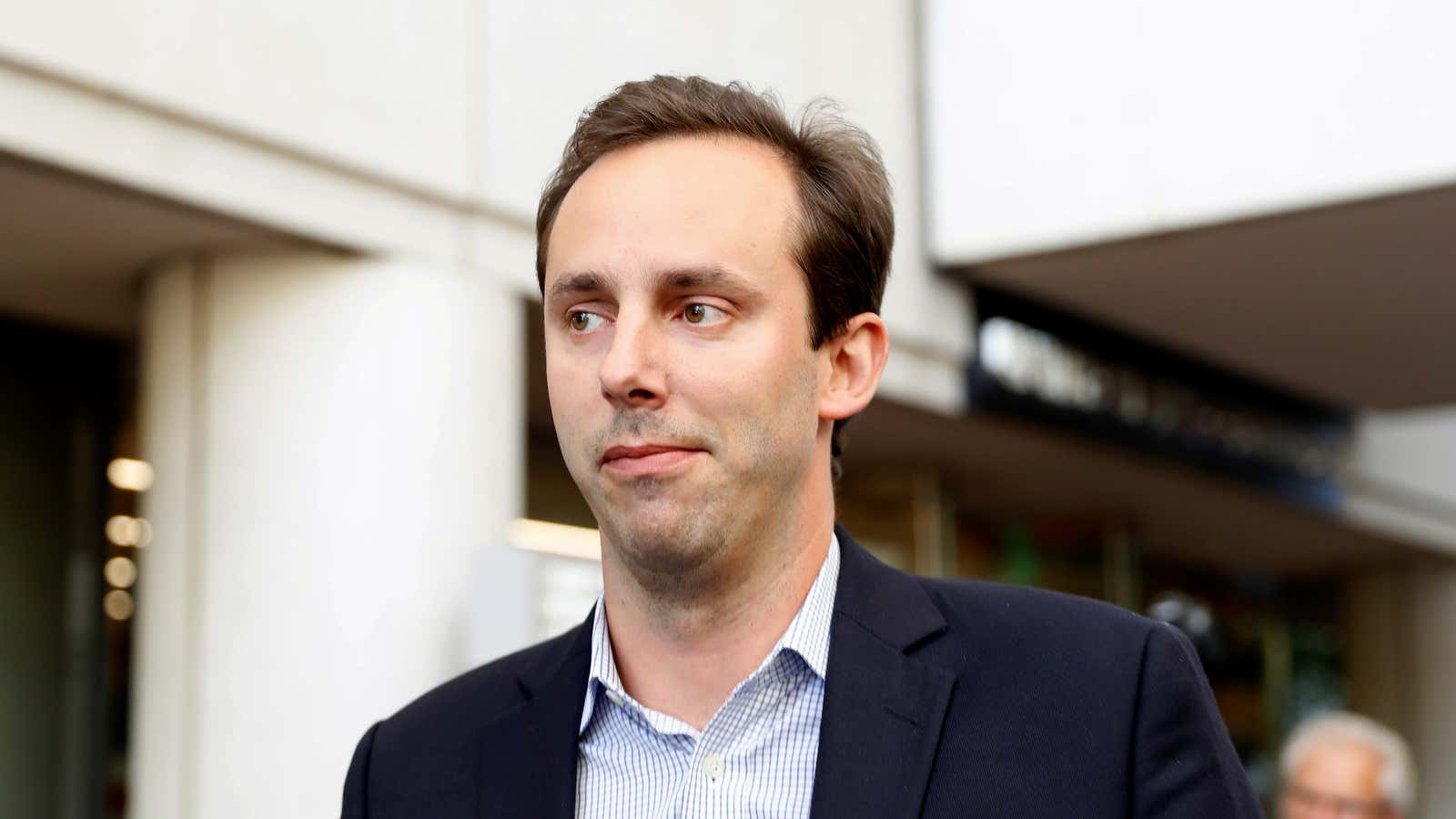Serial entrepreneur and tech wunderkind Anthony Levandowski was charged yesterday by federal authorities with 33 counts of attempted theft of trade secrets.
The criminal indictment from the US Attorney for the Northern District of California is a striking development in a lawsuit that Alphabet-owned Waymo filed against Uber in February 2017. The case went to trial a year later in San Francisco, and the two companies settled after four days. But months earlier, the federal judge overseeing the case had also referred Levandowski’s actions to federal prosecutors for possible criminal charges, and that investigation continued.
Levandowski, 39, was the central figure in Waymo’s explosive lawsuit against Uber. A rising star at Alphabet’s driverless car project, Levandowski allegedly absconded with trade secrets plus a host of Waymo employees in January 2016 to found a competing autonomous technologies startup, Otto, which he sold to Uber for $680 million that August.
The indictment contains new details on what Levandowski allegedly stole from Alphabet. It charges him with downloading files that included schematics for printed circuit boards used in custom lidar products, instructions for customizing and fine-tuning those lidar products, and technical goals for the driverless car team. There are specific file names like “projects/Laser/YBr/ybr-pulser/ybrpulser_1-1-0/driver.SchDoc” and “TBR TESTING STATION.” For once in the dispute between Alphabet and Uber, nothing was redacted.
Levandowski “knowingly stole, and without authorization appropriated, took, carried away, concealed, and by fraud, artifice, and deception obtained trade secrets belonging to Google, and attempted to do so,” reads the indictment. “Silicon Valley is not the Wild West,” said John Bennett, an FBI special agent, at a press conference. “The fast-paced and competitive environment does not mean federal laws do not apply.”
The indictment is a warning shot to Silicon Valley and the “move fast and break things” culture that thrives in the name of technological progress.
Levandowski reportedly surrendered himself to the authorities yesterday morning, and was arraigned in court in San Jose that afternoon. Law360 reporter Dorothy Atkins has a detailed Twitter thread: Levandowski pleaded not guilty to all charges; he didn’t wear a tie. Prosecutors identified him as a flight risk because he has dual US and French citizenship and made $120 million in bonuses from Google. Friends and family offered up their houses as sureties on a $2 million bond. His next hearing is set for Sept. 4. He faces up to 10 years in jail.
Levandowski is the ideal antihero for a corporate thriller: the favorite lieutenant of Alphabet boss Larry Page who committed the ultimate betrayal. Levandowski met Uber co-founder and then-CEO Travis Kalanick in 2015 and began meeting with him in secret toward the end of his time at Waymo. Kalanick later described Levandowski as a “brother from another mother.” The pair bonded over shared interests like “winning,” “squeezing our attorneys like toothpaste,” and the “Greed is Good” speech from the 1987 film Wall Street. They plotted to win big and to get their “pound of flesh” in the process.
After Waymo filed its lawsuit, Levandowski stayed resolutely silent, invoking his constitutional protection against self-incrimination. Uber suspended Levandowski from his position as head of self-driving technologies, but he remained at the company until Uber sacked him on May 30, 2017, under pressure from a federal judge.
Lesser entrepreneurs might have retreated, chastened, into obscurity after such an ordeal, but not Levandowski. He founded a driverless trucking startup, Pronto.ai. “I don’t really dwell on the past,” he told the Guardian last December. Pronto.ai said yesterday that it had promoted its chief safety officer to CEO.
An earlier version of this post appeared in Oversharing, Alison Griswold’s newsletter about the sharing economy. Sign up for it here.
